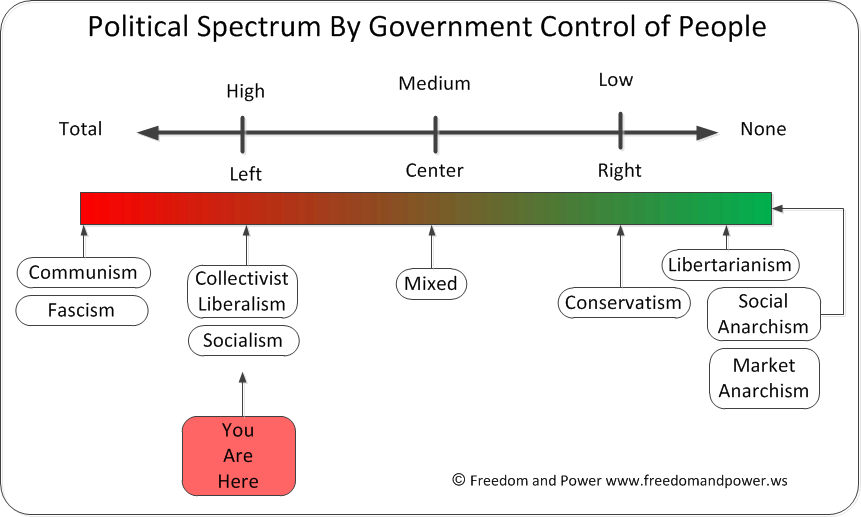This little corner of our site contains a primer of political theories. These theories are based not on what political parties adopting said theories say, but on the philosophical principle governing said theories.
What this means is that our little classification will be based on how each political theory defines the term "good" or what a "just society" is. More importantly, we will compare sister or brother theories against each other in plain language (none of that philosophical mumbo-jumbo).
If you are going to act as an informed person, you might as well be informed.
POLITICAL PHILOSOPHIES
What is a political philosophy?
It is the discipline that provides justification of collective institutions, most notably, governments. That's right. It provides the justification for them. In philosophical terms, there is no difference between a political philosophy and a political theory. However, we do differentiate between them. We call political philosophy to the basic principles governing a political theory, and a political theory the development of such principles. We also call political system the practical implementation of a political theory.
Political spectrum
This concept (Left, Right and Centre) is nowadays obsolete, but still quite useful. We will continue to use it, but with a twist. Please see the pictures below.


In an nutshell
This table provides the basic philosophical principles upon which different political theories are developed. Links to in-depth information are located in the subsequent table.
|
Political Theory |
Definition of Good |
Economic Consequence |
|
Classical Liberalism (Libertarianism) |
It promotes the good of every single individual separately (minimum government). |
Free Markets |
|
Collectivist Liberalism |
It promotes the overall good of groups of individuals (massive government). |
Controlled Markets |
|
Socialism |
It stresses the importance of society as a whole and a strong government as an absolutely necessary tool to create a just society. |
Controlled Markets |
|
Communism |
It believes that a just society can only be achieved if the government is in control of everything. |
Slave Markets |
|
Conservatism |
It aims to uphold history, tradition and custom through the government as the means to create a just society (limited government) |
Some Market Control |
|
Fascism |
It exploits history, traditions and customs to create a hierarchical society with people at the top defining and controlling the state, and people at the bottom who are subordinate or inferior to the state. This is what makes society just (massive government) |
Slave Markets |
|
Social Anarchism |
It believes that a just society can only be achieved if the collective is in control of everything (no government) |
Slave Markets |
|
Market Anarchism |
It promotes the good of every single individual but without the existence of a government. |
Free Markets |
Who are we?
But we (Absolute Austro-Libertarians) are not here! That's right; technically speaking we are not there. However, in a sense, we are. Absolute Austro-Libertarianism is very close indeed to Market Anarchism. It also wants Free Markets and No Government whatsoever. The differences are minor, but are primarily based on the fact that Libertarianism and Austrian Economics have a much deeper and wider knowledge base than Market Anarchism. This is, Austrian Economics and Libertarianism have been around for a long time and do have a large number of well-established and recognized academics.
And then, we have the issue of bad propaganda. As people are in general terms ignorant, they don't bother finding out the difference between the "bad" anarchism (Social Anarchism) and the "good" anarchism (Market Anarchism). It does us no favors (nor to our readers) to be associated with the group that is famous for using bombs and violence instead of logic, arguments and data.
Political Spectrum Index - Comparative Tables
|
Political Theory #1 |
Political Theory #2 |
Link |
|
Classical Liberalism (or Libertarianism) |
Collectivist Liberalism |
|
|
Socialism |
Communism |
|
|
Conservatism |
Fascism |
|
|
Social Anarchism |
Market Anarchism |
|
|
Modern Views |
||





